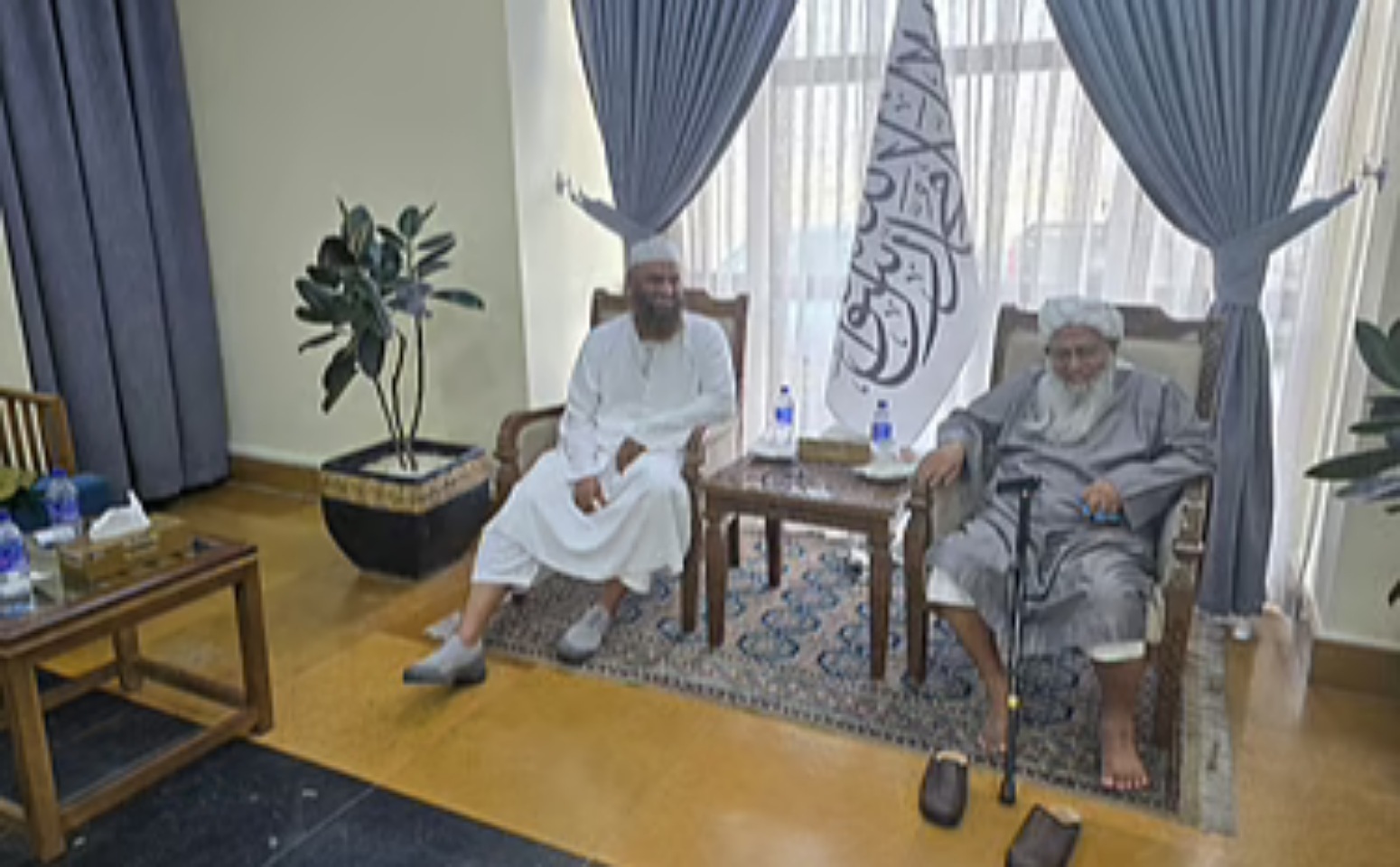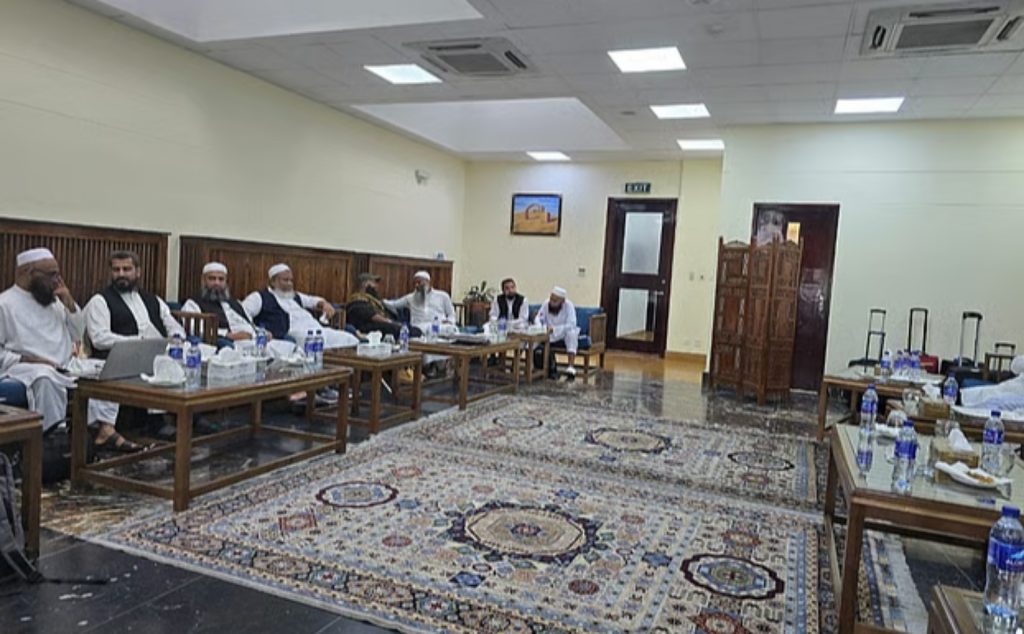
Hindu Voice Team: A high-profile delegation of seven Bangladeshi Islamic radical leaders, led by Maulana Mamunul Haque, Amir of the Bangladesh Khelafat Majlis, arrived in Kabul, Afghanistan, this week at the invitation of the Taliban government, raising growing concerns over Bangladesh’s political and religious trajectory. The visit comes amid fears that increasing influence of Islamist groups could push the country toward a Taliban-style governance model.
The delegation, which also includes senior figures from ‘Hefazat-e-Islam Bangladesh’ and other Islamic organizations, is scheduled to meet Afghanistan’s Chief Justice, senior ministers, and leading clerics to discuss areas of potential cooperation including education, healthcare, trade, and religious affairs. Observers point out that the Taliban, recognized internationally as a terrorist organization with a history of human rights violations, has long faced criticism for its treatment of women and minority groups, making the delegation’s visit highly controversial.

In addition to diplomatic discussions, the Bangladeshi clerics plan to observe the Taliban’s policies on human rights and women’s rights, which have drawn global attention and condemnation. The delegation is also expected to visit other Central Asian countries following their stay in Kabul to explore further opportunities for religious and regional collaboration.
Analysts and political commentators in Bangladesh and abroad have expressed concern that this visit could embolden domestic Islamist movements, potentially undermining Bangladesh’s secular democratic framework. The trip underscores the growing interest among some Bangladeshi religious groups in forging ties with Afghanistan’s current leadership, raising questions about the nation’s future direction and its commitment to pluralism and democratic governance.